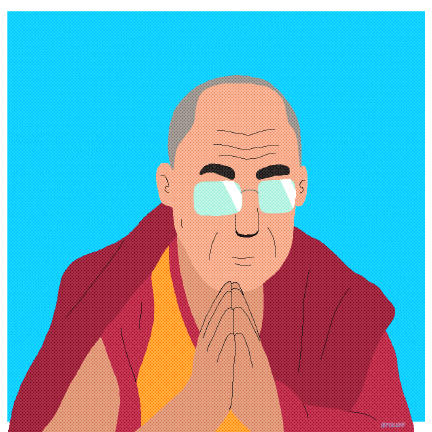The Southgate Myth; Attribution error; The shit not-shit binary; UP Red Flags; The Grandstand Delusion; 1974; Wimbledon's local problem; FE FTA; Tripoli is Listening
Overthinking the sports business, for money
This week’s Unofficial Partner Newsletter is sponsored by Loughborough University London and the Institute of Sports Humanities
Leadership in Sport MA 2024 Applications Open
Applications for the next intake on the 2024 Leadership in Sport Masters are open.
The Leadership in Sport Masters is designed for sports industry executives to study part-time alongside their careers.
The programme is co-delivered by Loughborough University London and the Institute of Sports Humanities (ISH), experts in leadership education.
Loughborough University is ranked best university in the world for sports-related subjects (QS World University Rankings by Subject 2017-2023).
Find out more https://www.sportshumanities.org/masters-uk
or contact tom.rann@sportshumanities.org
Once you see attribution error, you can’t un-see it
In 2016, I wrote a book about leadership in sport.
It went down well.
The Guardian raved, and put it on their book of the year list.
I was invited on to Radio Four to do a live talk at the Design Museum.
Conference seminars and media interviews followed.
The book was passed around by football managers, rugby coaches and Ryder Cup captains.
I became a trusted adviser to some well known people in sport, business and politics, who wanted to think about narrative and how to control it.
Looking back I didn’t know what the book was about when I started writing it.
I’ve since learnt that this is not uncommon, because writing is where you do the thinking (which btw, is why you should avoid devolving writing to AI).
What I thought was a book about leadership, was really a book about attribution error, the delusion embedded in to much of what we read and talk about in relation to leadership.
And what I thought was a work of stunning originality, was actually a sporting version of someone else’s much better book, The Halo Effect by Philip Rosenzweig.
The problem is, I only read The Halo Effect after I’d written the first draft of my book, the book that Bloomsbury had paid a lot of money for the rights to, and that I now knew was not the book I wanted to write.
So I had go back and rewrite almost the entire thing.
The Halo Effect is a brilliant articulation of how daft we become when we talk about leadership, the evidence of which is available at an internet browser near you.
Gareth Southgate is this week’s case study.
He’s shit or he’s the Dalai Lama, depending on a dodgy penalty and a late Ollie Watkins winner.
The final score is data. The rest is story. Myth.
The vast majority of sports journalism follows this path and I’ve come to think the reason is structural.
Before TV and the internet, the job of the journalist was to report what had happened: The who, what, where, when of the event they were attending.
Today, we know all that stuff in real time.
So journalists and the pundit class are tasked with the over-reach of Why.
And that’s a whole different question.
The rise of the leader has coincided with this shift, from what to why.
CEOs used to be dull and unknown functionaries. A bit like football managers (Quiet Genius, Ian Herbert’s book on Bob Paisley is worth your time).
Now CEOs are TV stars and football managers prowl the sidelines, performing leadership before our very eyes.
But I reserve my greatest contempt for the suited class of business ‘gurus’ who peddle the same crap.
This review of The Halo Effect had it right:
‘Like a virus, these fundamental errors of thinking infect much of what we read, whether in leading business magazines, scholarly journals, or management bestsellers. Central among these delusions is the Halo Effect, the tendency on the part of the experts to point to the high financial performance of a successful company and then spread its golden glow to all its attributes: clear strategy, strong values, brilliant leadership, and outstanding execution. But should the same company’s sales head south, the very same attributes are turned on their heads and derided for poor decision making across the board - suddenly the strategy was wrong, the culture was complacent, and the leader became arrogant’.
In real life, the relationship between cause and effect is rarely linear and it’s more accurate to think of success emerging from a maelstrom of conflicting contextual factors such as human skill and endeavour, leadership, luck, randomness plus a mix of external factors such as the state of the competition and the economic environment.
But who wants to read that shit?
You might say ‘it’s only football’.
But as we know, sport sells.
The sport-as-entertainment era has amplified the pseudo science of leadership.
Take a moment to listen to those St George flag waving meatheads in the pub, on Twitter and increasingly on talk radio.
They barely mention football. It’s all strategy, decision making and leadership; Maslow, Herzberg and Handy after twelve pints of wife beater.
See also: Did I Tell You The One About My Book, The Pub and the Amazon Rating System?
Handsome but dead: Wimbledon for 50 weeks of the year
Ed Warner asks some good questions about the All England Club’s expansion plans which are opposed locally.
What could genuine collaboration between venue and its local community look like?
Wander around the AELTC in the middle of winter and you are struck by just how handsome but dead the massive venue is outside its grand slam fortnight. Why simply extend that deadness over the road?
The AELTC remits 90% of its annual profits to the Lawn Tennis Association, national governing body for the sport. Last year that amounted to £49 million, helping make the LTA one of the wealthiest NGBs.
What do the boroughs need most? Could be a medical centre, school, social housing, a multi-sport venue. Maybe other things entirely. Has the AELTC asked Merton and Wandsworth the question, or vice versa?
Then there’s this zinger. LTA ROI?
The LTA doesn’t need any more cash. Indeed, less might even force it to sharpen its focus, possibly yielding greater results.
UP Red Flags
Words and phrases that don’t mean what people think they mean.
This week: Free to Air.
Mentioned previously, a big UP Red Flag is when the CEO of an NGB mentions Grandstand, the BBC’s long running Frank Bough fronted Saturday afternoon sports compendium show.
This is often within a conversation about media strategy and the job of reaching new audiences.
For people of a certain age, Grandstand is a shortcut to nirvana, when sport was spoon fed via three TV channels, and the bastards at the other end took what they were given.
If only the BBC brought back Grandstand, goes the argument, my sport would be saved.
Free to Air is synonymous with large audiences (known by sports media insiders as ‘eyeballs’), and with it, the assumption of succulent rights fees.
Then I see a press release like the one below, from Formula E.
And I wonder if Free To Air is really as powerful a platform in 2024 as sometimes assumed to be.
Discoverability is the single hardest job in sports media. Being in front of a paywall doesn’t change that fact.
From Advanced Television:
Formula E has announced that the Hankook London E-Prix, the final two rounds of the ABB FIA Formula E World Championship, will be broadcast on free-to-air TV channel Quest in the UK and Ireland.
Viewers will be able to watch the Season 10 victor of the all-electric motorsport series be crowned World Champion onQuest via Freeview (channel 12), Freesat (167), Virgin (137) and Sky (144). Both Rounds 15 and 16 of the ABB FIA Formula E World Championship will be live on Quest on July 20th and 21st. Quest and TNT Sports – Formula E’s host broadcaster in the UK – are part of Warner Bros Discovery.
See also:
I compared Formula E to women’s football on this week’s episode of The Bundle.
My point was that they are both purpose driven and wondered how this changes the funding balance between marketing revenue and media rights.
Murray Barnett dismantled this view.
Have a listen.
1974, Cruyff, the swimming pool and the real story of Total Football
I’m a big fan of Simon Kuper and Mehreen Khan’s podcast series, Heroes and Humans of Football.
This one on the 1974 Dutch team is particularly good.
Welcome to our new listeners
From Redcar to Libya.
Thanks for reading.
Now press the heart button.





